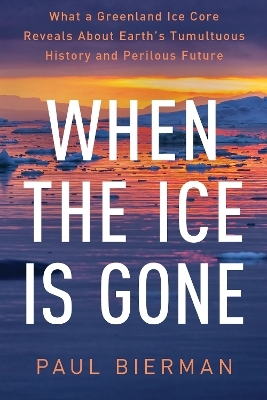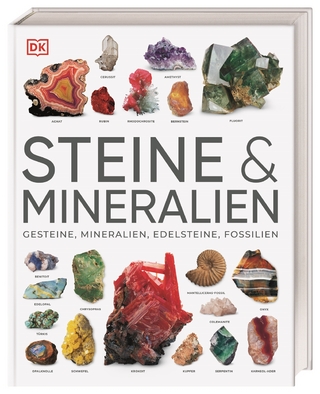
When the Ice Is Gone
What a Greenland Ice Core Reveals About Earth's Tumultuous History and Perilous Future
Seiten
2025
WW Norton & Co (Verlag)
978-1-324-11030-9 (ISBN)
WW Norton & Co (Verlag)
978-1-324-11030-9 (ISBN)
- Noch nicht erschienen (ca. September 2025)
- Versandkostenfrei innerhalb Deutschlands
- Auch auf Rechnung
- Verfügbarkeit in der Filiale vor Ort prüfen
- Artikel merken
Paul Bierman’s realization that Greenland’s ice sheet melted when Earth was no warmer than today sounds an alarm for our planet.
In 2018, lumps of frozen soil, collected from the bottom of the world’s first deep ice core and lost for decades, reappeared in Denmark. When geologist Paul Bierman and his team first melted a piece of this unique material, they were shocked to find perfectly preserved leaves, twigs, and moss. That observation led them to a startling discovery: Greenland’s ice sheet had melted naturally before, about 400,000 years ago. The remote island’s ice was far more fragile than scientists had realized—unstable even without human interference.
In When the Ice Is Gone, Bierman traces the story of this extraordinary finding, revealing how it radically changes our understanding of the Earth and its climate. A longtime researcher in Greenland, he begins with a brief history of the island, both human and geological, explaining how over the last century scientists have learned to read the historical record in ice, deciphering when volcanoes exploded and humans started driving cars fueled by leaded gasoline.
For the origins of ice coring, Bierman brings us to Camp Century, a U.S. military base built inside Greenland’s ice sheet, where engineers first drilled through mile-thick ice and into the frozen soil beneath. Decades later, a few feet of that long-frozen earth would reveal its secrets—ancient warmth and melted ice.
Changes in Greenland reverberate around the world, with ice melting high in the arctic affecting people everywhere. Bierman explores how losing Greenland’s ice will catalyze devastating events if we don’t change course and address climate change now.
In 2018, lumps of frozen soil, collected from the bottom of the world’s first deep ice core and lost for decades, reappeared in Denmark. When geologist Paul Bierman and his team first melted a piece of this unique material, they were shocked to find perfectly preserved leaves, twigs, and moss. That observation led them to a startling discovery: Greenland’s ice sheet had melted naturally before, about 400,000 years ago. The remote island’s ice was far more fragile than scientists had realized—unstable even without human interference.
In When the Ice Is Gone, Bierman traces the story of this extraordinary finding, revealing how it radically changes our understanding of the Earth and its climate. A longtime researcher in Greenland, he begins with a brief history of the island, both human and geological, explaining how over the last century scientists have learned to read the historical record in ice, deciphering when volcanoes exploded and humans started driving cars fueled by leaded gasoline.
For the origins of ice coring, Bierman brings us to Camp Century, a U.S. military base built inside Greenland’s ice sheet, where engineers first drilled through mile-thick ice and into the frozen soil beneath. Decades later, a few feet of that long-frozen earth would reveal its secrets—ancient warmth and melted ice.
Changes in Greenland reverberate around the world, with ice melting high in the arctic affecting people everywhere. Bierman explores how losing Greenland’s ice will catalyze devastating events if we don’t change course and address climate change now.
Paul Bierman is professor of environmental science at the University of Vermont, where he develops methods to understand ice and date rocks. He has published in Science and Nature, and his findings have been covered by CNN, New York Times, Washington Post, and the Weather Channel, among others. He lives in Burlington, Vermont.
| Erscheint lt. Verlag | 19.9.2025 |
|---|---|
| Zusatzinfo | 29 black-and-white images throughout, 1 map |
| Verlagsort | New York |
| Sprache | englisch |
| Maße | 140 x 210 mm |
| Themenwelt | Sachbuch/Ratgeber ► Natur / Technik ► Natur / Ökologie |
| Naturwissenschaften ► Biologie ► Ökologie / Naturschutz | |
| Naturwissenschaften ► Geowissenschaften ► Geologie | |
| ISBN-10 | 1-324-11030-9 / 1324110309 |
| ISBN-13 | 978-1-324-11030-9 / 9781324110309 |
| Zustand | Neuware |
| Haben Sie eine Frage zum Produkt? |
Mehr entdecken
aus dem Bereich
aus dem Bereich
über 500 faszinierende Gesteine, Minerale, Edelsteine und Fossilien
Buch | Hardcover (2023)
DK Verlag Dorling Kindersley
26,95 €
Familien und Gattungen einheimischer Pflanzen
Buch | Hardcover (2022)
Haupt Verlag
64,00 €


